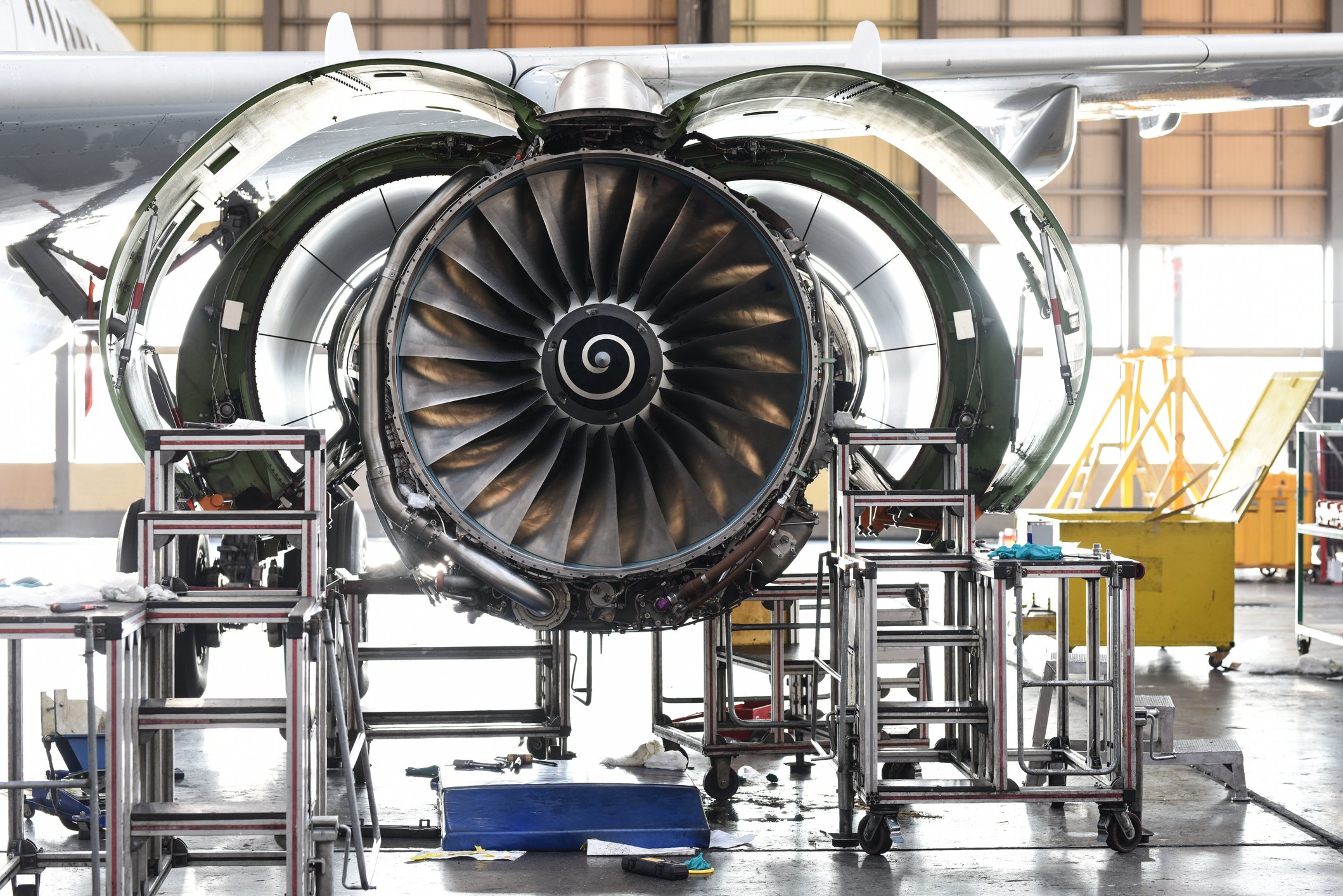Triumph Group (TGI +0.00%) is now two years into an arduous restructuring campaign, consolidating an unwieldy 47 operating units down to 20 and shedding some of the worst performers. But as the company's most recent results show, even after all of that, there is still considerable work to be done.
Triumph on May 10 reported fiscal fourth-quarter earnings per share of $1.01 on sales of $896.8 million, beating earnings expectations by $0.04 per share and revenue projections by $68 million. But the markets focused on the company's projection that it would earn between $1.50 and $2.10 per share in the upcoming fiscal year (well below the $2.47 per share estimates) and the lack of clarity on free cash flow, sending shares of Triumph down more than 8%.

A Triumph-made Gulfstream wing assembly. Image source: Triumph Group.
Triumph is cheap by almost any measure. But that doesn't necessarily mean it is a good buy. Here's a look at where the company stands coming out of earnings, and what the rest of the year has in store for the aerospace component manufacturer.
An ongoing transition
Triumph is very much a work in progress, with CEO Daniel Crowley taking over in January 2016 with a mandate to clean up a bloated cost structure and improve sub-par results. Triumph, the product of dozens of acquisitions over nearly four decades, has missed out on a long-running aerospace rally fueled by a strong up-cycle in commercial aerospace sales and increased demand for air transport.
Crowley has put his stamp on the company, reducing Triumph's sites from 75 in early 2016 to 52 today. He's dumped money-losing programs like Gulfstream G650 wing box work, which Triumph recently agreed to transfer to Gulfstream, and won back business from the likes of Northrop Grumman, which had previously made Triumph ineligible to bid on new work.
Triumph in the recently completed quarter said its backlog was $4.49 billion, up 3% sequentially and 13% year over year, and says it is on track to cut annual costs by $300 million.
However, as the reduced earnings guidance indicates, all is not well at Triumph. The company generated an anemic 4.2% operating margin in the quarter, with its massive aerostructures division barely at breakeven before adjustments for goodwill impairment.
Part of the issue is that some of Triumph's larger programs, including work on Boeing commercial jets and the Bombardier Global 7000 business jets, are early stage and not yet generating margins. As Triumph fulfills its contract obligations to Boeing and moves from development to production of the Global 7000, revenue on those programs will expand and costs should decrease, helping margins. What is less certain is how long it will take for programs like the Global 7000 to mature.
Uncertain guidance
More distressingly for investors, Triumph offered no guidance for fiscal 2019 free cash flow. The company bled through about $300 million in its recently completed fiscal year and said it expects that figure to be "meaningfully improved" in the next 12 months, but said it was not yet ready to discuss specifics.
In management's defense, there are a lot of variables that could impact cash flow and profitability this year. Success, or lack of success, with the Global 7000 program is a factor, as is how quickly and successfully Triumph can transition the G650 work to Gulfstream and consolidate its Boeing 767 structures work at a company-owned facility in Stuart, Florida.
Crowley is also trying to better-diversify the company by growing defense revenue from 20% of total to 30% or more. About half of Triumph's $12 billion current pipeline is military, and about half of its competitive wins over the last year were on defense-related platforms. Triumph has exposure to all three competitors on the Navy's refueling drone program, as well as on Boeing's T-X trainer submission, and a number of aftermarket and overhaul contracts.
But Triumph is attempting to win new business in a highly competitive environment where rivals including Spirit AeroSystems (SPR +0.00%) are similarly focused and ahead of Triumph in the restructuring process. Crowley's work bringing down costs makes Triumph a better bet to win its share of new business, but it is far from a guarantee that the hoped-for contract wins will materialize.
Stay on the sidelines
There is real value in Triumph's collection of assets, and based on his work so far, Crowley appears to be the right person to lead the turnaround. Given the company's substantial valuation discount to competitors like Spirit, which has had its own share of issues in recent years, Triumph appears to be one of the better bargains among commercial aerospace suppliers.
| Company |
Price/Sales |
Price/Book |
Forward P/E |
|---|---|---|---|
|
Triumph |
0.35 |
1.49 |
9.10 |
|
Spirit AeroSystems |
1.38 |
5.36 |
11.80 |
Data as of May 11. Data source: Yahoo! Finance.
Triumph today is still very much in a state of transition, with too many unanswered questions that will take time to answer to justify buying in now. Over the coming quarters, we should get some clarity into currently unanswered questions about the Global 7000, Triumph's success in winning new business, and its ability to consolidate facilities without disruption. Should those things work out as well as management hopes, Triumph will be well on its way to a recovery and worth a second look from investors.
I'm optimistic Triumph's time will come, but that time is not today. This is one to watch from the sidelines right now.







